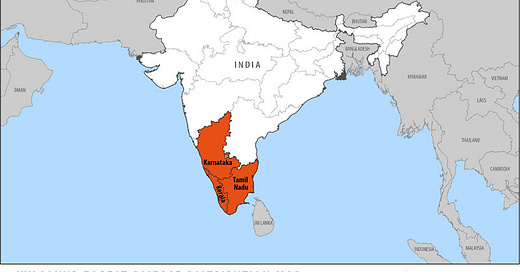Officials with the Karnataka state government in southwestern India are reporting an outbreak of Kyasanur forest disease (KFD), aka monkey fever.
Since the beginning of the year through February 4, 68 cases of the viral disease have been reported, including at least two deaths.
The outbreak has prompted the health authorities to issue an advisory to the public.
According to the Centers for Disease Control and Prevention (CDC), KFD is caused by Kyasanur Forest disease virus (KFDV), a member of the virus family Flaviviridae. KFDV was identified in 1957 when it was isolated from a sick monkey from the Kyasanur Forest in Karnataka (formerly Mysore) State, India. Since then, between 400-500 humans cases per year have been reported.
Hard ticks (Hemaphysalis spinigera) are the reservoir of KFD virus and once infected, remain so for life. Rodents, shrews, and monkeys are common hosts for KFDV after being bitten by an infected tick. KFDV can cause epizootics with high fatality in primates.
Transmission to humans may occur after a tick bite or contact with an infected animal, most importantly a sick or recently dead monkey. No person-to-person transmission has been described.
After an incubation period of 3-8 days, the symptoms of KFD begin suddenly with chills, fever, and headache. Severe muscle pain with vomiting, gastrointestinal symptoms and bleeding problems may occur 3-4 days after initial symptom onset.
Patients may experience abnormally low blood pressure, and low platelet, red blood cell, and white blood cell counts. After 1-2 weeks of symptoms, some patients recover without complication. However, the illness is biphasic for a subset of patients (10- 20%) who experience a second wave of symptoms at the beginning of the third week.
These symptoms include fever and signs of neurological manifestations, such as severe headache, mental disturbances, tremors, and vision deficits.
The estimated case-fatality rate is from 3 to 5% for KFD.
There is no specific treatment for KFD, but early hospitalization and supportive therapy is important. Supportive therapy includes the maintenance of hydration and the usual precautions for patients with bleeding disorders.
A vaccine does exist for KFD and is used in endemic areas of India. Additional preventative measures include insect repellents and wearing protective clothing in areas where ticks are endemic.






